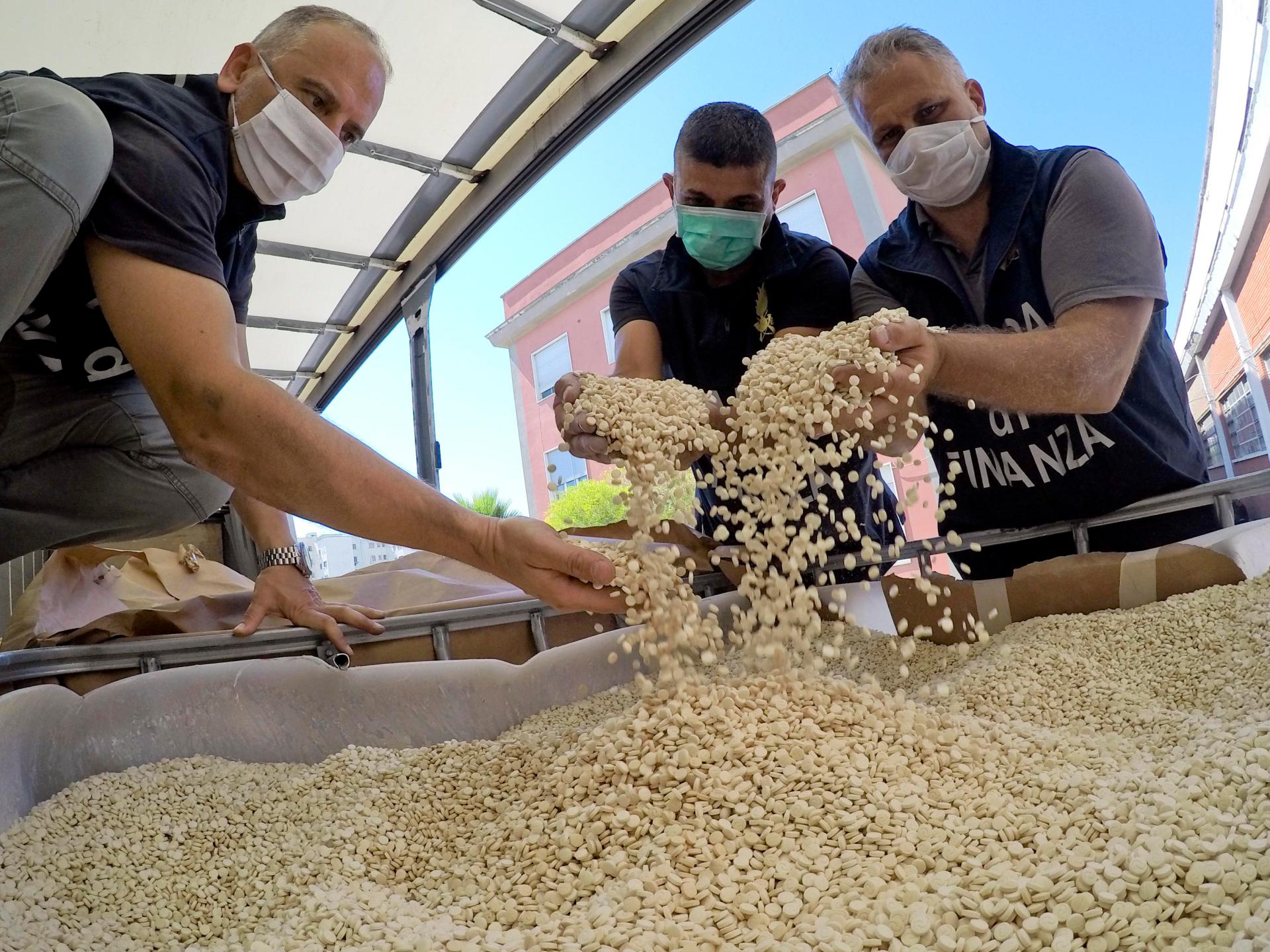Today, Thursday, the Beirut Criminal Court issued a 7-year prison sentence with hard labor against Hassan Dago, one of the most prominent dealers of Captagon narcotic pills in Lebanon, who is dubbed by local media as the "King of Captagon."
A judicial official told Agence France-Presse that the ruling "imposed a penalty of hard labor for a period of 7 years against the accused, Hassan Daqu, and convicted him of the crime of manufacturing and smuggling the narcotic substance Captagon abroad, and fined him an amount of 100 million Lebanese pounds," which is equivalent to only $2,500, according to the exchange rate in Lebanon. Black market.
According to the merits of the ruling, the court established the existence of "contacts between Dogo and activists in drug smuggling operations," as well as his request from one of the defendants to "purchase materials involved in the manufacture of Captagon."
Cooperate with security
Daqu previously cooperated with the Information Division of the Lebanese Internal Security Forces, providing it with information about shipments that were smuggled abroad, "but by monitoring the memory of his cell phone, it was found that there were data images belonging to drug shipments that he did not give the division information about," according to the court's decision.
Captagon production sites (zero one. Narcotic pills sold for abuse and distributed in the Gulf countries, the north of the island and Africa) are the main ones in # Syria and # Lebanon # France_Press pic.twitter.com/c19RNUDgyx
- Iyad Al-Rawi 🇮🇶 (@aead_alrawi95) April 6, 2022
The court also sentenced others to imprisonment between 5 and 3 years in the presence of others in the same case, in addition to sentences in absentia of life hard labor for 25 people, including the three brothers of Duqo, while stripping them of their civil rights and preventing them from disposing of their movable and immovable funds.
The security forces arrested Dago in April of last year, and he completely denied his accusation of smuggling Captagon pills, stressing that he works for military institutions affiliated with the Syrian regime, and he is also close to the Lebanese Hezbollah.
Security officials say that some of the businesses run by Duqu are nothing but a cover for the drug trade, including an agricultural pesticide factory in Jordan, a car company in Syria, and a fleet of tanks, and he benefits from a network of good relations with Syrian and Lebanese officials.
Trade on the rise
The Captagon industry and its trade witnessed a boom in Lebanon during the past years, prompting the authorities to intensify their efforts to thwart smuggling operations, especially after criticism from Saudi Arabia and other Gulf countries. Today's verdict against Dago comes as the first conviction of a prominent Captagon trader at this level.
Syria is the most prominent source of this substance, as drug gangs close to the regime have become a primary source for a network that extends to Lebanon, Iraq, Turkey and the Gulf states, as well as to African and European countries.
Western newspapers published several reports about this trade run by the Syrian regime, including a lengthy investigation by the German newspaper "Der Spiegel", titled "Syria: Drug Smuggling Under the supervision of Bashar al-Assad's Regime" last June, in which it was stated that the regime's symbols are involved in the trade. Drugs flowing into the Gulf and Europe, with revenues reaching $5.7 billion in 2021 alone.
This is what an investigation by the American New York Times went to, indicating that an illegal drug trade worth billions of dollars, run by powerful associates and relatives of President Bashar al-Assad, was built on the ruins of 10 years of war, and has transformed the country into the newest state. dependent on the illegal drug trade in the world.

